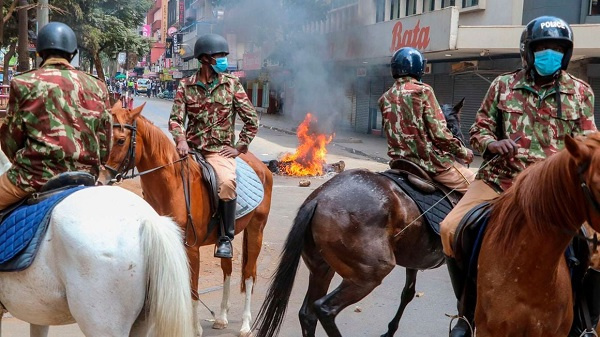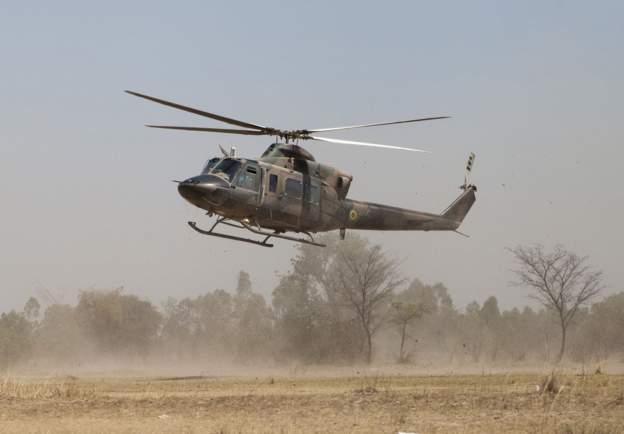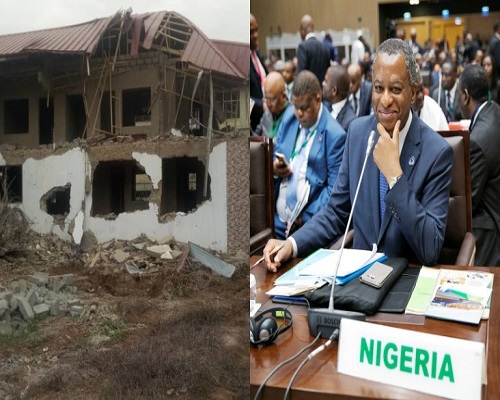Kenya’s opposition protests put Uganda on the edge

This was held on Monday when protests called by Kenya’s opposition leader Raila Odinga put Uganda on the edge, amid calls to President Yoweri Museveni to intervene.
Uganda is a landlocked country and largely depends on its eastern neighbour for imports and export through the port of Mombasa, Kenya being Uganda’s main supply route for essential goods including fuel.
Kampala is also Nairobi’s main trading partner and importer of its goods.
In the first half of 2022, for instance, exports of Kenya-made goods to Uganda amounted to Ksh36.2 billion ($277 million), only second to the US at Ksh38.8 billion ($297 million). Other countries that depend on Nairobi for imports are Rwanda, DR Congo, Burundi and South Sudan.
Goods movement hit
The riots that disrupted business in the capital Nairobi, parts of Rift Valley and western Kethe nya hit the movement of goods on the Northern Corridor, which links Kenya to the rest of Eastern Africa.
Reports indicate the demos that paralysed the operations in the western towns of Kisumu, Homa Bay and Busia spilt into Uganda, affecting business in Busia, a border town on the Ugandan side.
As the mayhem unfolded, Ugandan roads leading to Kenya remained deserted, with public service vehicles, cargo trucks and fuel tankers cutting short their journeys for fear of being caught up in the riots.
Cross-border transporters were among businesses that bore the brunt of Kenya’s 200-2008 post-election violence that claimed more than 1,100 lives.
During the chaos, trucks were set ablaze, cargo looted and scores of drivers killed by marauding gangs that took advantage of a security breakdown.
Fuel tankers
Michael Kibwika, the Busia Resident District Commissioner (RDC), said he had noted a drastic reduction in the number of fuel tankers and cargo trucks crossing from either side of the border on Monday.
Abdallah Mahina, a cargo truck driver en route to Nairobi, said he cut short his trip for fear of being attacked by rioters.
“I arrived here last evening and was advised to park because of the uncertain political situation in Kenya,” he told the Daily Monitor.
Mahina said he learned a lot from the 2007 protests that broke out shortly after the late Mwai Kibaki was declared winner of a disputed presidential election.
“We had some Ugandan drivers who were killed and as result, we, who are driving Ugandan-registered trucks, cannot venture into Kenya as of now.”
Abdu Saja, who transports fresh food from Uganda to Kenya, said he had parked his truck due to the “uncertainty” along the route.
“I was taking fresh foods to Mombasa, but I cannot cross the border to Kenya because of the riots,” he said amid fears that his perishable goods may rot.
No customers
Bashir Kise, a money changer at the border, said since Monday morning, he had not received any customers buying or selling local currency since his business targets travellers.
“Bus companies have parked, which has affected travel across the border and affected our businesses as moneychangers,” he said.
Kassim Namudia, a clearing agent, said the reduction in the number of trucks crossing the border due to the riots rendered them idle.
Busia’s main market, which handles the bulk of cereals destined for East and Central Africa, was equally affected, according to Wilson Bugembe, a trader. According to him, on a busy day, the market receives about 300 trucks of maize and beans, which was not the case on Monday.
The riots come as an indirect response to the former Independent Electoral and Boundaries Commission (IEBC) chairperson Wafula Chebukati, who announced Dr William Ruto as the president-elect in August last year. Odinga challenged the outcome at the Supreme Court, a case that he lost on grounds of insufficient evidence.
Later, the Azimio leader blamed the ruling Kenya Kwanza Alliance for failing to lower the cost of living, seven months after being in power, and piled pressure on President Ruto to bring back subsidies that were synonymous with his predecessor Uhuru Kenyatta’s administration.
Call to intervene
Meanwhile, Uganda’s Opposition Forum for Democratic Change (FDC) has asked the government to intervene in Kenya’s situation before it escalates.
FDC deputy spokesperson John Kikonyongo noted that Uganda is a landlocked country and since almost 90 percent of its imports come in through Kenya’s Mombasa port, the Ugandan economy was likely to be affected.
He advised the government of President Yoweri Museveni to lobby the East African Parliament and diplomats to intervene in the situation before it gets out of hand.
Odinga and Azimio leaders have vowed to hold protests every Monday and Thursday until President Ruto gives in to their demands, which include fresh scrutiny of the 2022 presidential election results.
“We [urge] the government of Uganda to think about the situation in Kenya more seriously, they shouldn’t take it for granted because it has a lot of effects on our economy,” Kikonyongo said.
“If there is a way of working out a solution despite being a foreign country, I believe it is [the] high time they came in with whatever they could do.”
He appealed to Ugandans to store some essentials to prepare in case the situation in Kenya worsens.
“When there is a war in Kenya, automatically Uganda is in danger as far as our economy is concerned. We cannot [interfere in] their internal affairs but we must pray to God that whatever happens there doesn’t affect us,” he said.
Source: monitor.co.ug





